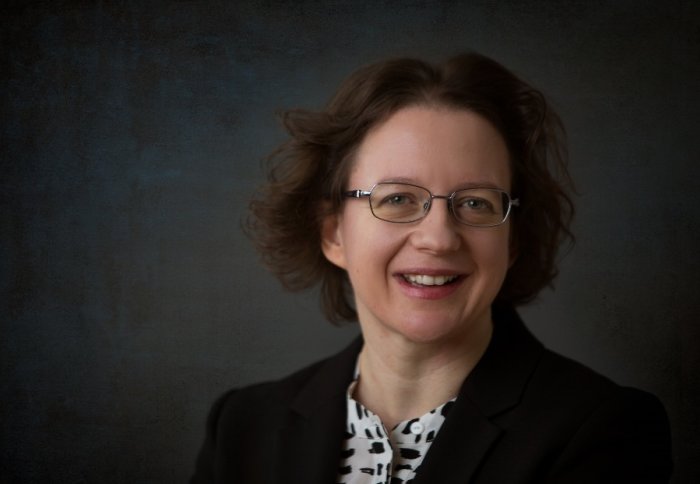Security and defence innovation in White City

Lucy Mason, Head of DASA
Imperial White City is fast becoming a hotbed of innovation for security and defence, creating synergy between UK Government, industry and academia.
The UK Government’s Defence and Security Accelerator (DASA) supports the latest innovations that can help make the UK more secure and resilient.
Earlier in 2018 DASA co-located a hub in Imperial’s White City, under a partnership led by the Institute for Security Science and Technology.
Max Swinscow-Hall caught up with the Head of DASA, Lucy Mason, to learn more about their activities and how things are going in White City.
What is DASA’s mission and how do you achieve this?
Our mission is to find and fund exploitable innovation to support UK defence and security quickly and effectively and help build prosperity for the UK.
Our team helps bridge the gap between the UK’s innovators -- be they in academia, in industry or the classic ‘inventor in the shed’ – and the defence and security end users, such as security services, emergency services and military.
We fund early stage research projects to help bring innovations to the end user. In doing so we help improve UK security and defence, and also build prosperity by creating commercial value.
How are things going in White City?
Great so far. At DASA we’re always keen to get out and meet innovators, and having an accessible presence is an important part of this. Creating a hub in Imperial’s White City has allowed us to increase our reach to SMEs and academics.
We’re really excited to continue to work with Imperial College and the ISST on their vision of a critical infrastructure innovation cluster.
What sort of innovations do DASA fund?
We’re interested in innovation that has an end user in security or defence, and that is technologically feasible.
We run two types of competition: Themed Competitions, which specify the problem we want solutions for, and the Open Call for Innovation which can be in any application area.
We don’t take equity, we don’t ask for IP rights, and we fund 100% of the proposal.
The success rate is healthy, with 1 in 5 proposals funded in the Open Competition. The average grant size is around £100k, but we have funded several proposals around the £1million mark.
Why is it important for the UK Government to work with academia and industry on innovation?
The UK faces threats from a wide range of actors, from lone actors to organised criminal networks to hostile nation states. Whilst Government understands the problems we currently face, we don’t always have the solutions, so we need to engage wider society to find the latest innovations.
This was really highlighted in a 2015 UK Government report which concluded that the UK was too slow to respond to how technology was changing the threat landscape. Adversaries will often adopt new technology much faster than we can, and we need to be more nimble in responding.
Are there any challenges to working with academia and industry in security and defence?
There can be issues around sensitivity of information and the requirement for security clearance, although this is somewhat overstated and shouldn’t necessarily be a hurdle to innovators.
Many of the problems we want solutions for are pretty well documented, but we need to be better at communicating them. This is a big focus for DASA.
"As a society we face threats to our safety, security and liberty, and we rely on our scientists and innovators to help solve these challenges."
In academia we sometimes see a strong reluctance to work on security or defence applications for ethical reasons, which is absolutely a decision for the individual. I am passionate about the importance of our work and believe it is extremely positive.
As a society we face threats to our safety, security and liberty, and we rely on our scientists and innovators to help solve these challenges. Innovations we fund are used to save lives of emergency service staff in the UK and soldiers on the front line. What’s more, we often fund innovations that can build secure and resilient societies overseas; a secure world is better for everyone.
What are the main technology areas you see developing that have security and defence implications?
There are many. Cyber continues to be a particularly difficult and evolving challenge, and is only going to grow as digitisation and the Internet of Things continues to disrupt consumer markets, health care, agriculture and every other aspect of society.
Human augmentation is a technology area I’m fascinated by, such as developments in neurotechnology and advanced exoskeletons. This has huge implications, although is perhaps a bit further away.
Synthetic biology is another area that plays into human augmentation, we saw recently the first report of CRISPR to modify humans, but this technology also has implications for biosecurity which are somewhat more immediate.
What should researchers do if they have an innovation they want to develop through DASA?
A good start is to contact one of our Exploitation Managers to get a quick feel for whether the innovation is something we’re interested in.
We can also help you identify who might be the end user which is a crucial part of the proposal. Either send us an email at accelerator@dstl.gov.uk or call +44 (0)1980 950000 (select option 3).
Article text (excluding photos or graphics) © Imperial College London.
Photos and graphics subject to third party copyright used with permission or © Imperial College London.
Reporter
Max Swinscow-Hall
Institute for Security Science & Technology